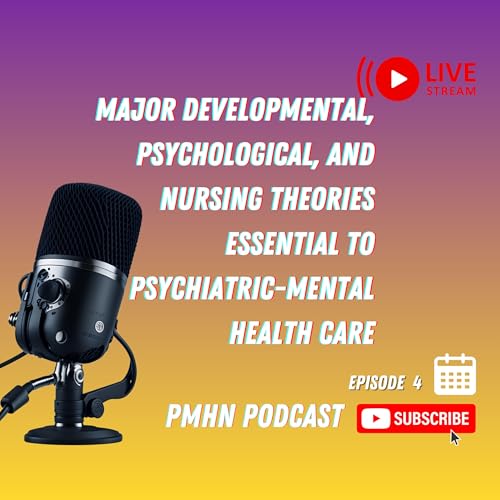
Major developmental, psychological, and nursing theories essential to psychiatric-mental health care
Failed to add items
Add to basket failed.
Add to Wish List failed.
Remove from Wish List failed.
Follow podcast failed
Unfollow podcast failed
-
Narrated by:
-
By:
About this listen
Key Theories in Psychiatric-Mental Health Nursing
This Episode Summarizes major developmental, psychological, and nursing theories essential to psychiatric-mental health care. Covers Erikson’s developmental stages, Freud’s psychodynamic model, Piaget’s cognitive stages, Sullivan’s interpersonal theory, Maslow’s hierarchy of needs, the Health Belief and Transtheoretical Models, Bandura’s social learning, and core nursing frameworks by Leininger, Orem, Peplau, and Watson, highlighting their clinical relevance.
The podcast highlight developmental, psychodynamic, cognitive, interpersonal, behavioral, and nursing theories that form the theoretical foundation of PMHNP practice, emphasizing human growth, unconscious drives, relationships, motivation, and the central role of caring and therapeutic relationships.
- How Erikson’s psychosocial stages guide psychiatric nursing
- Freud’s psychodynamic theory in psychiatric mental health practice
- Piaget’s stages of cognitive development explained for nurses
- Sullivan’s interpersonal theory and psychiatric care
- Using Maslow’s hierarchy of needs in nursing practice
- Transtheoretical Model of Change in health behavior
- Role of Bandura’s self-efficacy in patient outcomes
- Peplau’s phases of the nurse–client relationship
- Watson’s Caring Theory in mental health nursing
- Orem’s self-care theory and patient independence


